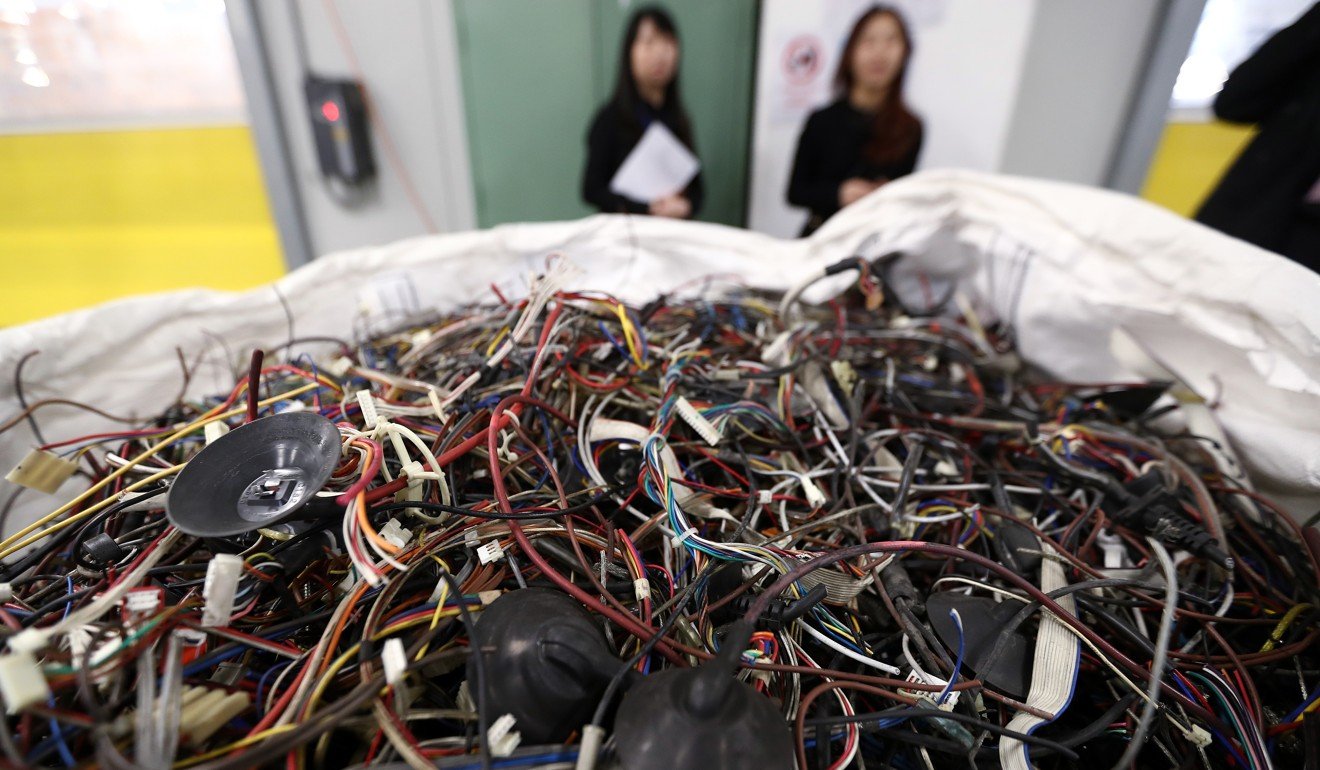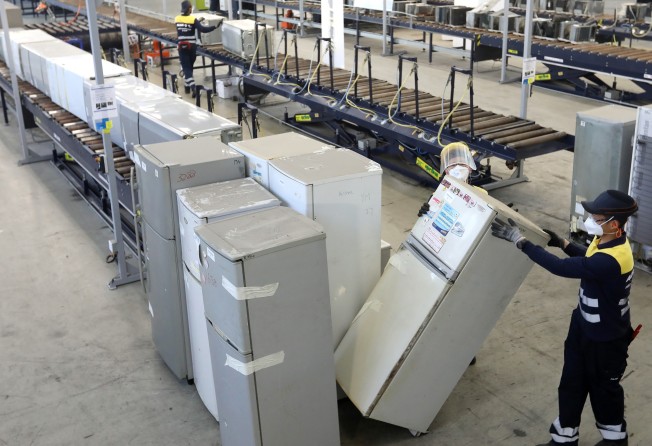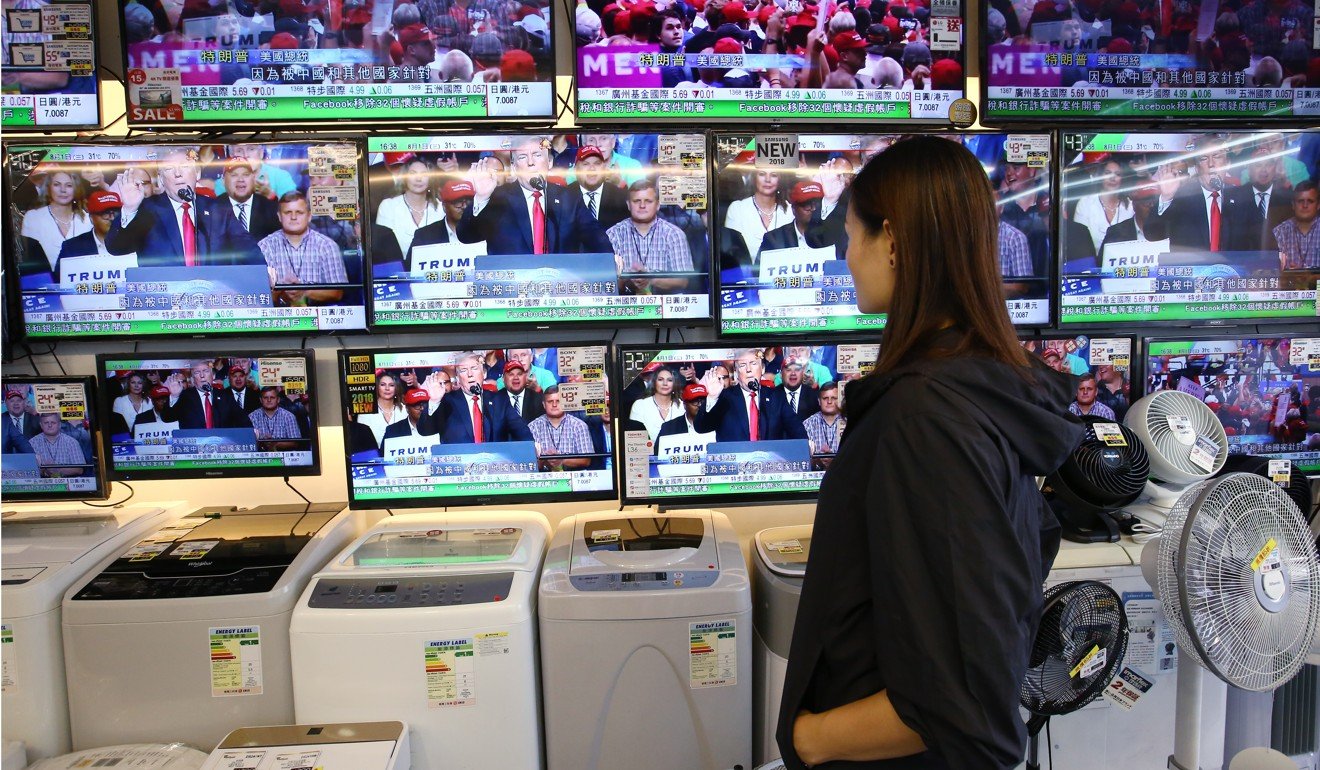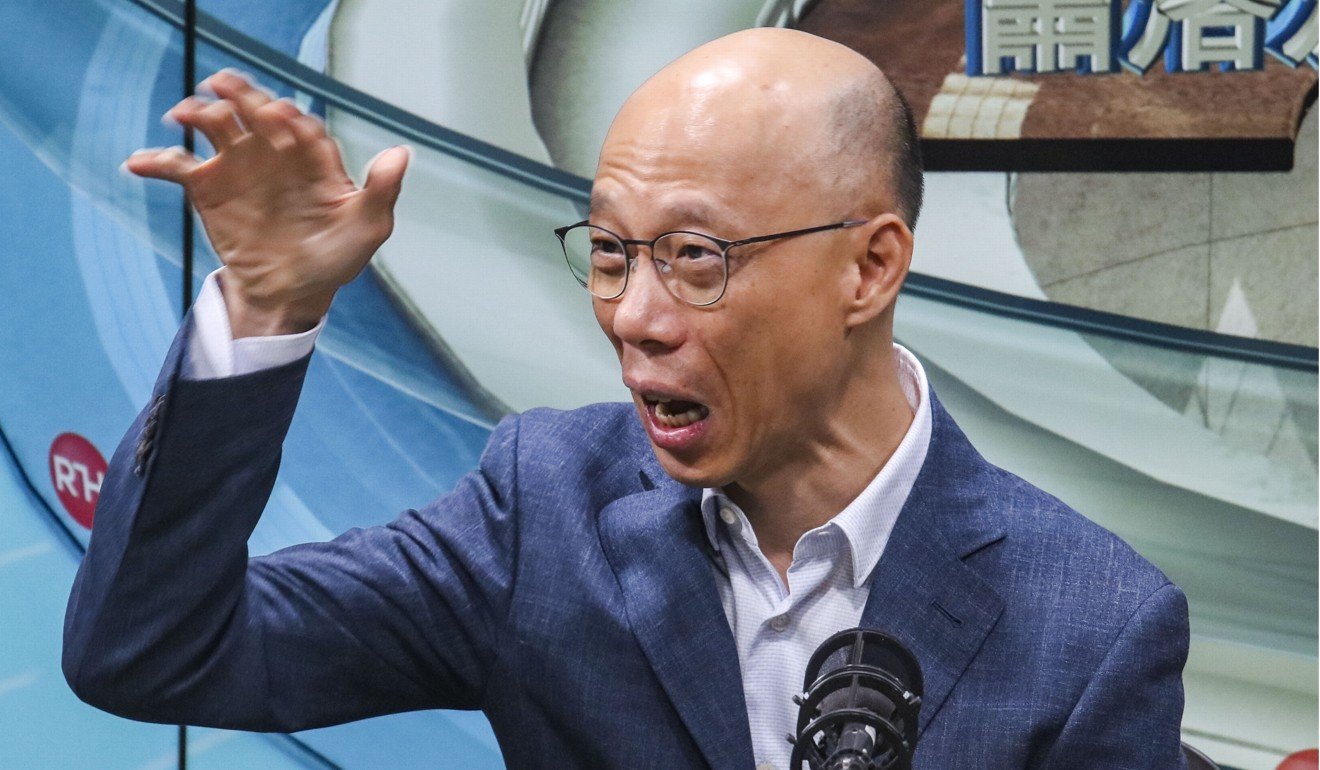
Hong Kong can pay to dispose of electronic waste properly – it can’t afford more pollution
Bernard Chan says the sheer volume of electronic equipment we throw away each year has made the new producer responsibility scheme necessary. Instead of asking whether consumers will pay more, we should consider the price of not disposing of such waste properly

There was a time when air conditioners, refrigerators and computers were expensive luxuries. Today, they are so affordable that when they break or are out of date, we throw them out and get new ones.
Some items are virtually designed to be disposable. For example, computer printer manufacturers make their profit from ink cartridges. Many of us replace perfectly good televisions and computers to keep up with the latest upgrade model. Even if we want to repair a device, it is often more practical to just buy a new one.
As a result, Hong Kong throws out 70,000 tonnes of waste electrical and electronic equipment every year.
These devices contain harmful compounds. If electronic waste goes into landfills, elements like lead and cadmium can leak out and pollute soil and water.
Hong Kong ships much of its electronic waste overseas. In some cases, the equipment is repaired and refurbished and sold to local customers in poorer economies. In other cases, salvagers break up the equipment for valuable content like copper and gold. We also have a local salvaging industry that has been importing electronic waste – not always legally.

With the right safeguards, refurbishment and recycling can be a sustainable and profitable business. At the other end of the scale, poorer countries are simply being used as dumps for toxic waste. Governments are increasingly tightening regulations on this trade.
The Hong Kong government conducted a public consultation into this issue in 2010, and started to prepare a framework to treat electronic waste locally. After legislation was passed in 2016, the Environment Bureau prepared the Producer Responsibility Scheme on Waste Electrical and Electronic Equipment. It went into effect at the beginning of this month.
I know from my work on waste charging proposals with the Sustainable Development Council that initiatives like this are sensible and necessary – but challenging to implement.
There is the logistics and organisational side of it – essentially deciding who oversees the physical work involved. And there is the even more challenging question of deciding who pays for it.
Actually, this last question is simple: ultimately, we are all paying for it – but we all want to think someone else is.

The producer responsibility scheme applies to specific categories of equipment, namely air conditioners, refrigerators, washing machines, televisions and computers and computer accessories like printers. The aim is to ensure that when they are discarded, all these items go to processing facilities.
Existing recycling operations will have to get licences to take part. The government has also set up a waste electrical and electronic equipment (WEEE) facility in Tuen Mun.
On the logistical side, retailers need to provide a free removal service for customers buying new products in these categories. If retailers handle this directly, delivery and collection can take place at the same time, or the operator of the recycling facility, Alba IWS, will pick up the old item, and consumers can also call a hotline to arrange for the free collection of old items (there is a potential for inconvenience here).
Predictably, people are more concerned about the financial arrangements. Suppliers need to pay a recycling levy to pay for all this – hence the name “producer responsibility” scheme.
Will suppliers pass the costs on to consumers? Let’s be frank. At the end of the day, all business costs (and government costs for that matter) are paid by consumers and the public. But we all benefit from a cleaner environment and more sustainable supply chain.

The actual costs are estimated to range from HK$15 for a computer printer to HK$165 for a refrigerator. While no one welcomes higher prices, it might make us stop and ask whether we really need the latest widescreen television. In any case, we are certainly not better off by leaving toxic substances in the soil and water for our children.
The producer responsibility scheme is part of the government’s commitment to sustainability. It follows the plastic bag charging scheme, which was initially controversial but has now become widely accepted in the community. Next year, the government will introduce another scheme to recycle glass drinks bottles.
Officials are also studying ways to tackle the issue of plastic drink bottles, which is something I think we all agree is necessary.
It’s not a question of whether we can afford initiatives of this sort – we can’t afford not to have them.
Bernard Chan is convenor of Hong Kong’s Executive Council